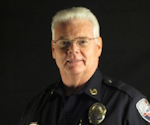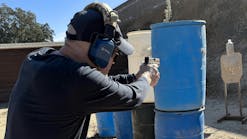As a former director of training and now a chief, I can tell you it is sometimes difficult to plan a department's training curriculum. Some may even lay down on the job and only go with their state's minimum recommendations. They use words similar to minimum required hours to protect their budget but not the officers and communities. First of all, training is like maintenance for the employee. You would not think of having a motor vehicle without tuning it up for peak efficiency and performance. Training for the officers is no different; training fine tunes your staff to maximize their performance. There are the usual training topics that come up to refresh the staff but in these changing and challenging times we live in, I see some topics that must be presented to your staff for everyone’s legal, tactical and administrative survival.
Active Shooter
This training is changing. We are now training officers to perform one officer entry, no longer losing precious time waiting for a squad or tactical team to respond. Lessons learned have revealed that this waiting is allowing the perps to fortify and kill more victims. The single officer entry approach is not being embraced by all. There are several strategies now being fine tuned; are you up to date? If your department has not performed active shooter response training within the past six months, you are behind the tactical edge. Let me clear the air here, I said 'performed' the training; not a roll call or showing of a video-performance.
Contact your tactical team leader, range master or academy and set up training now. It would be especially best to perform this in your local school, mall or where you feel that this could evolve in your community. This serves several purposes as to familiarize all of the staff with the actual environment in which they could respond, nobody said we can't be the home team for once. Additionally you can train with the actual staff that could be working with you, introduce yourself now rather than later. Build strong teams with understanding and common goals.
Firearms rights
I do not know if this is the current uncertainty of our world or changing times. Many are becoming scared and striving to protect themselves. Some speak of urban street gangs that are now embedding themselves in the small towns and rural areas. Organized crime syndicates such as outlaw motorcycle gangs (OMGs) are making their presence known again. Loss of gun rights is fueling the public's concerns. It matters not which idea you embrace or if you do at all, the people are concerned. First of all, let it be said that I am not against any law abiding citizen having gun ownership and their right to carry. My concern is when thugs have guns; that being said, let's get to the training points.
I strongly recommend that you have the concealed carry weapons (CCW) laws of your state readily available and train on them. Officers need to know the rights of a CCW holder and their limitations. Also have a reciprocal recognition of concealed-carry privileges; these vary state-to-state on recognition. There are several charts and maps on websites that are current. This is especially relevant if you are working in a tourism area or one with interstate commerce.
Another point is the understanding of open carry laws for your state. This in many states is perfectly legal and often some officers may not fully understand this law. It is extremely difficult for officers to contact a person carrying a firearm, I know this. But, there are cases where a few officers did not know the laws and infringed some CCW and/or open carry personal rights. Let's work with our citizens and not set ourselves up for a bad case. There are several websites, most are state specific on this area, familiarize yourself here as well.
Training should be current, relevant and proactive. Gain the pulse of your community, state and region and use it to set your training strategy.

William L. Harvey | Chief
William L. "Bill" Harvey is a U.S. Army Military Police Corps veteran. He has a BA in criminology from St. Leo University and is a graduate of the Southern Police Institute of the University of Louisville (103rd AOC). Harvey served for over 23 years with the Savannah (GA) Police Department in field operations, investigations and completed his career as the director of training. Served as the chief of police of the Lebanon City Police Dept (PA) for over seven years and then ten years as Chief of Police for the Ephrata Police Dept (PA). In retirement he continues to publish for professional periodicals and train.


